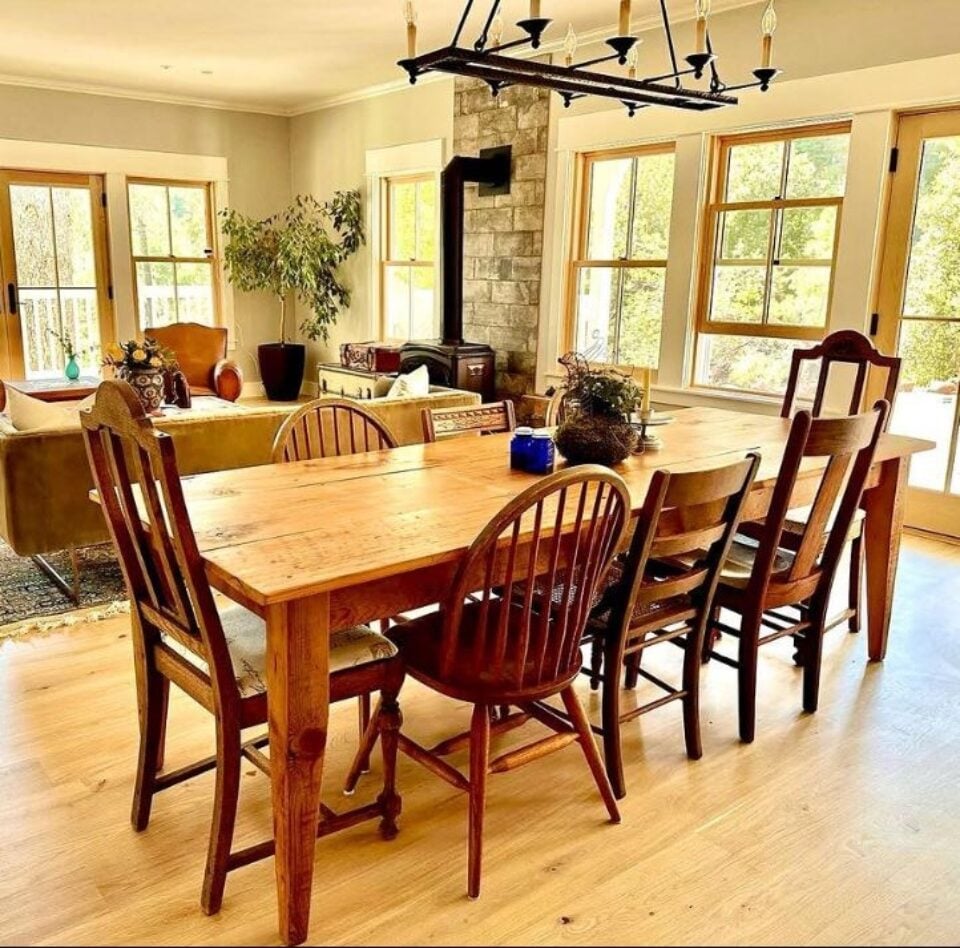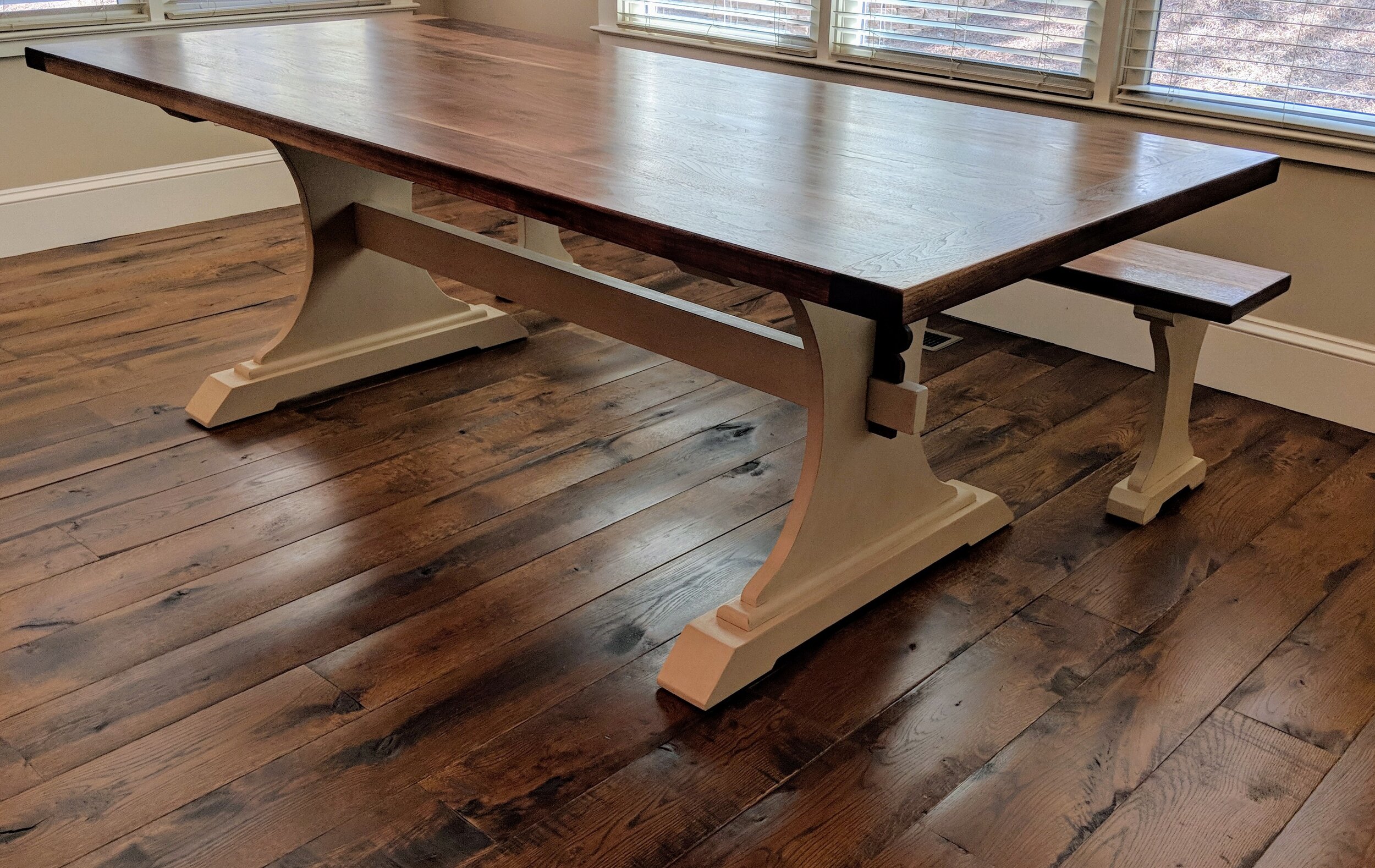Bring Heat and Personality to Your Area with Dining Table Legs Wood
Bring Heat and Personality to Your Area with Dining Table Legs Wood
Blog Article
Trick Variables to Bear In Mind for Table Legs Wood Choices
When choosing wood for dining table legs, a number of critical factors call for careful consideration to make sure both functionality and aesthetic allure. The option of wood kind, defined by its toughness and distinct grain patterns, plays an essential duty in the overall style and longevity of the piece.
Timber Kind and Attributes
When picking wood for dining table legs, it is important to understand the distinct features of numerous wood types. Different timbers provide distinct benefits and downsides, influencing both the sturdiness and visual charm of the completed item.
Oak, recognized for its excellent durability, also includes a popular grain that can include character to the table. Cherry timber, with its rich shade that strengthens over time, supplies an extravagant look yet might need more upkeep to protect against scrapes.
On the other hand, softwoods like want and fir are extra budget-friendly and simpler to collaborate with, yet they are less sturdy than woods. Pine is light-weight and features a warm, rustic look, making it a preferred selection for casual dining setups. Nevertheless, it is extra vulnerable to dents and scratches.
Comprehending these characteristics will aid in making an informed choice to make certain the legs of the dining table fulfill both useful and aesthetic demands.
Grain Patterns and Visual Appeal
Picking the appropriate grain pattern can substantially boost the visual allure of dining table legs. The wood's grain is not simply a visual feature; it imparts a special individuality and beauty to each piece. Different wood species display distinctive grain patterns, varying from the straight lines of maple to the detailed swirls of oak and the striking number of walnut. These patterns can stimulate numerous designs, from rustic to modern, making it necessary to select a grain that aligns with the overall style of the eating room.
Additionally, the alignment and range of the grain can affect the regarded dimension and beauty of the table. Larger, much more noticable grains may offer a strong, remarkable impact, while finer, subtler grains can create a fine-tuned, underrated appearance. In addition, the finishing process can better boost these patterns, emphasizing the natural charm of the timber and highlighting abundant colors.
Eventually, the choice of grain pattern should balance with other layout elements, such as the table top and surrounding furniture, making certain a cohesive aesthetic that raises the eating experience. Thoughtful selection of timber grain not only adds to the table's charm but additionally shows the proprietor's taste and design.
Durability and Strength
The resilience and strength of eating table legs are vital considerations for ensuring durability and security in any type of eating space. Picking the best timber is crucial, as different species display varying degrees of durability. Woods such as cherry, oak, and maple are frequently liked for their integral strength and resistance to use. These materials not just hold up against daily use but additionally sustain heavy tons, making them ideal for eating tables that frequently fit several restaurants. Dining Table Legs Wood.

Eventually, purchasing high-grade timber and durable building and construction approaches will yield a table that stands the examination of time, while providing a reputable foundation for numerous meals shared amongst family and friends. Focusing on resilience and strength makes sure that your table stays useful and visually pleasing for many years to find.
Maintenance and Care
Proper maintenance and treatment are crucial for protecting the toughness and stamina of dining table legs made from wood. Regular cleansing is necessary; utilizing a soft, damp towel makes certain that dust and particles do not collect, which can cause scratches and monotony. It is a good idea to prevent rough chemicals or rough materials that might damage the surface.
Additionally, using an ideal timber polish or wax occasionally can aid keep the shine and protect the timber from moisture and spills. Nevertheless, it is vital to comply with the supplier's suggestions concerning the sort of item to use, as particular finishes might react negatively to details chemicals.
Humidity and temperature level variations can also affect wooden table legs, triggering them to warp or fracture. It's finest to place the table away from straight sunshine and warmth sources. Dealing with these immediately can stop more damage. if the table legs have any type of scratches or damages.
Finally, occasionally examining the joints and screws for rigidity is necessary to keep structural integrity (Dining Table Legs Wood). By sticking to these upkeep techniques, property owners can guarantee their wood dining table legs continue to be practical and appealing for many years to find
Environmental Considerations
When selecting wood for eating table legs, it's vital to take environmental considerations into account. The sourcing and sustainability of wood are vital in minimizing eco-friendly impact. Going with wood from licensed resources, such as those supported by Learn More the Woodland Stewardship Council (FSC), ensures that the wood is gathered responsibly, promoting woodland preservation and biodiversity.

Additionally, neighborhood sourcing of timber reduces transportation discharges, sustaining local economic climates while lessening ecological impact. It is likewise a good idea to be familiar with the timber's treatment and finishing procedures, as certain chemicals can be dangerous to both human health and wellness and the setting. By focusing on sustainable wood options, consumers can add to environmental conservation while enjoying the resilience and elegance of their table legs.
Conclusion
In final thought, selecting wood for eating table legs demands careful consideration of numerous elements, consisting of timber kinds, grain patterns, and longevity. Maintenance demands and environmental sustainability more impact wood options, stressing the significance of sourcing from licensed or redeemed materials.
When choosing timber for dining table legs, a number of important factors necessitate careful consideration to make sure both functionality and visual allure.Proper maintenance and care are essential for preserving the sturdiness and toughness of eating table legs made from wood.When picking wood for dining table legs, it's necessary to take ecological factors to consider right into account. By focusing on lasting wood selections, consumers can contribute to environmental conservation while appreciating the resilience and charm of their dining table legs.
In conclusion, choosing wood for dining table legs requires cautious consideration of different aspects, consisting of timber kinds, grain patterns, and sturdiness. Dining Table Legs view publisher site Wood.
Report this page